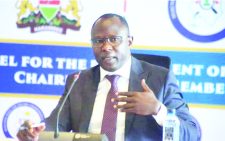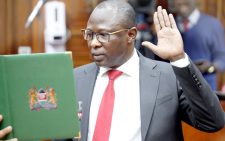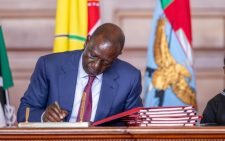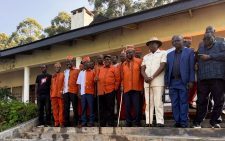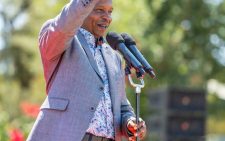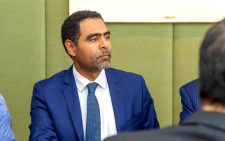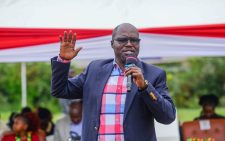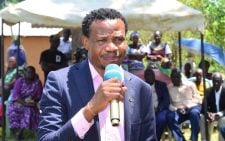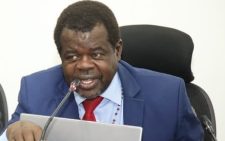IEBC mess: Staff exposes decline at electoral body
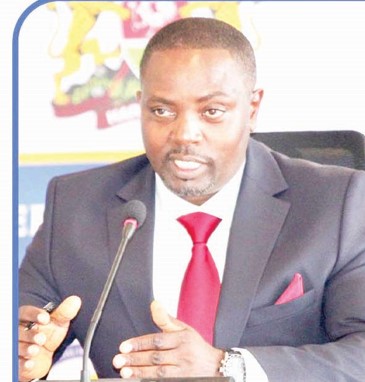
A staff member of the Independent Electoral and Boundaries Commission (IEBC ) has exposed the poor working conditions that they are subjected to despite the electoral body receiving billions of shillings from the Exchequer.
Dagoretti North Constituency Election Manager Leonard Njenga who has served the commission for 15 years recounted how he has stagnated on one job group since joining the elections agency.
“I joined IEBC as an election coordinator and currently I am a senior elections officer which is only a change of name. I am still at the same position, stagnant,” Njenga said when he was interviewed for the position of IEBC commissioner.
Njenga told the selection panel that the career stagnation mostly affects lower cadre staff, demotivating them despite the risks they face during the elections, pointing to gaps in IEBC’s recruitment policy.
“IEBC recruitment policy is that you can only move up the career ladder when the vacancy falls in the constituency you are currently serving. All the experience on election management that I have gained are personal initiatives through observer missions in other countries on a voluntary basis,” he revealed.
Noting that there are four senior staff above his position, Njenga revealed that he takes orders from each of them despite having better qualifications than some of them indicating a complicated chain of command at the commission.
Skills audit
“I feel that I have been employed by four employers but in one institution for the past 15 years. The existing policy does not align to career progression. There are many over-qualified staff at my cadre better than what you have up there,” he said.
Calling for auditing of skills and competences among the IEBC staff Njenga said that the commission must also establish a reward mechanism to motivate its otherwise demoralized workforce.
“It is very unfortunate that the only person who has ever received an award is the Late Daniel Musyoka (former Embakasi East returning officer) and he got the award posthumously,” an emotional Njenga told the Nelson Makanda-led panel.
The candidate also narrated how IEBC has continued to pay temporary staff, who are the majority in the elections, measly pay for the 10 years that he has served the electoral body.
“Since I joined IEBC we have been paying them Sh1,000 irrespective of inflation and still deduct 30 per cent Pay As You Earn (PAYE tax) so their take home pay is Sh700 including Nairobi,” he said.
To ensure a flawless election under strict timelines, Njenga proposed that his employer should host an exhibition involving local and international electoral technology developers instead of embarking on benchmarking tours.
“Some developers already have advanced electoral systems for voting digitally, tabulate results, verify and come with a monitoring component which can be very useful in the coming general elections,” he added.
Additionally, the election manager said that after elections, politicians must have the moral responsibility of delivering their campaign manifestos if the lost trust between IEBC and Kenyans is to be restored.
“…that affects the image of IEBC because when any leadership is elected and it doesn’t deliver as per its election promises, the citizenry feels that IEBC midwifed bad leadership. It dents the image of the commission yet it doesn’t have the control of the candidates who were sourced by the political parties or as independent candidates,” he said.
On his part, Kennedy Abuga, a director at Central Bank of Kenya (CBK) Governor’s office said that Parliament must fast-track the necessary regulations required in the implementation of Elections Campaigns Financing Act to prevent politicians from spending exorbitantly and make the exercise fair to all candidates.
“The legislation has encountered challenges in Parliament and its regulations are yet to be passed, another hindrance to ensure it is enacted and implemented. With more lobbying of MPs and public education overtime they will see the importance of the law no matter what the objections are,” said Abuga
If the law is enacted, the candidate said, IEBC will have a platform to control campaigns funding- but pointed out that the electoral body should first ascertain the actual amount that politicians spent to woo voters.
Abuga observed that the trust and confidence in IEBC is on an all-time low among Kenyans adding that if the commission does not engage them, then will continue to view it as opaque and not transparent even as the next election date draws near.
Public process
“There needs to be forums for engagement with even the Gen Z to sensitise them on IEBC programmes and give them an opportunity to ask questions about the electoral processes so that they are carried along since they are also critical stakeholders,” he stated.
After a robust public engagement, the candidate asserted that Kenyans will own up the electoral process, noting that when the results are announced and which will be an outcome of a process they have been involved all along everybody will be comfortable and chances of disputes will be minimized.
Abuga who has worked for five CBK governors also recounted the process under which the institution sold the Grand Regency hotel to Libyan investors sparking public outcry.
The Hotel, he said, was security held by the CBK to cover various facilities that had been illegally advanced to Kamlesh Pattni, where in 2008, Kenya’s top bank sold the hotel to Libyan investors.
“We appeared before the committee in Parliament with the then governor Njuguna Ndung’u and explained how the sale was handled. We also appeared before the Cockar Commission that was also investigating the transaction over the same issue,” the candidate said.
Though the Cockar report cited lack of transparency in the deal, Abuga told the Selection Panel that former President Mwai Kibaki directed that the proceeds of the transaction be used to start the LAPSSET (Lamu Port-South Sudan-Ethiopia Transport) corridor project in Lamu.
